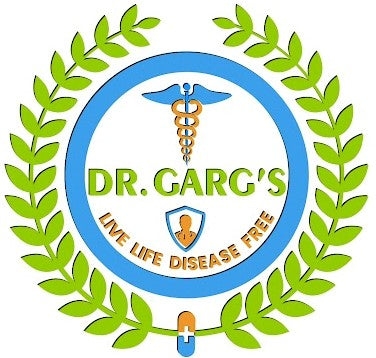Ringworm Treatment
Overview of Ringworm Treatment: Causes, Symptoms, Diagnosis, Homeopathic & Ayurvedic Treatment

Introduction:
Ringworm, despite its name, is not caused by a worm but is a fungal infection of the skin. It is a common condition that can affect people of all ages, causing red, itchy, and circular rashes on various parts of the body. In this article, we will provide an overview of ringworm, including its causes, symptoms, and diagnosis. Additionally, we will explore the potential of homeopathic and Ayurvedic treatments for ringworm.
Causes of Ringworm:
Ringworm is caused by various types of fungi known as dermatophytes. These fungi thrive in warm, humid environments and can be transmitted through direct contact with an infected person or animal, as well as through contaminated objects or surfaces. Factors that increase the risk of developing ringworm include compromised immune system, close contact with infected individuals or animals, poor hygiene, and prolonged exposure to moist environments.
Symptoms of Ringworm:
The symptoms of ringworm can vary depending on the area of the body affected. Common symptoms include:
- Red, itchy, and scaly patches on the skin that may be circular or ring-shaped.
- Clearing or lighter center of the rash, giving it a characteristic ring-like appearance.
- Itching and discomfort in the affected area.
- The rash may become more defined and develop raised, red edges as it spreads.
- In some cases, blisters or pustules may be present.
Ringworm can occur on various parts of the body, including the scalp, body, groin (jock itch), feet (athlete's foot), and nails. Each type of ringworm has distinct symptoms and may require specific treatment approaches.
Diagnosis of Ringworm:
Diagnosing ringworm is usually done on the characteristic appearance of the rash and a physical examination. In some cases, additional tests may be performed, such as a microscopic examination of skin scrapings, a fungal culture, or a Wood's lamp examination, which uses ultraviolet light to help identify fungal infections.
Treatment Options for Ringworm:
The treatment of ringworm aims to eliminate the fungal infection and relieve symptoms. Treatment options depend on the location and severity of the infection. Common treatment approaches include:
1. Topical Antifungal Medications:
Over-the-counter or prescription antifungal creams, ointments, or sprays are commonly used to treat ringworm. These medications are applied directly to the affected area and usually need to be used for several weeks to ensure complete eradication of the infection.
2. Oral Antifungal Medications:
In severe cases or when the infection does not respond to topical treatments, oral antifungal medications may be prescribed. These medications work from within the body to eliminate the infection.
3. Antifungal Shampoos:
For ringworm of the scalp, medicated shampoos containing antifungal agents may be recommended. These shampoos are used in combination with other treatments to address the infection on the scalp.
Homeopathic Treatment for Ringworm:
Homeopathic treatment for ringworm aims to stimulate the body's self-healing processes and restore balance. Homeopathic remedies for ringworm are selected based on the individual's unique symptoms and constitution. Commonly used homeopathic remedies for ringworm include Sulphur, Sepia, Graphites, and Tellurium. Dr. Garg can provide individualized treatment plans based on the specific needs of the person.
Ayurvedic Treatment for Ringworm:
Ayurveda, a traditional system of medicine from India, offers a holistic approach to treating ringworm. According to Ayurvedic principles, ringworm is believed to be caused by an imbalance in the body's doshas (energies) and can be influenced by diet, lifestyle, and environmental factors. Ayurvedic treatments for ringworm may include herbal remedies, dietary modifications, topical applications, and lifestyle changes. Ayurvedic herbs commonly used for ringworm include Neem (Azadirachta indica), Manjistha (Rubia cordifolia), and Haridra (Turmeric). It is important to consult with Dr. Garg, an experienced Ayurvedic practitioner for a personalized treatment plan.
It is important to note that both homeopathic and Ayurvedic treatments for eczema should be sought under the guidance of Dr. Garg, who is qualified practitioners experienced in these systems of medicine. He can provide individualized treatment plans and monitor progress over time.
Conclusion
In conclusion, ringworm is a fungal infection that can cause discomfort and affect various parts of the body. While conventional treatments like topical or oral antifungal medications are commonly used, complementary approaches such as homeopathy and Ayurveda may offer additional support. It is important to work closely with Dr. Garg Your Healthcare Expert to get a personalized treatment plan that addresses individual needs and ensures comprehensive care for ringworm. We have a team of qualified doctors and medical professionals who are committed to helping you in your journey to better health.
